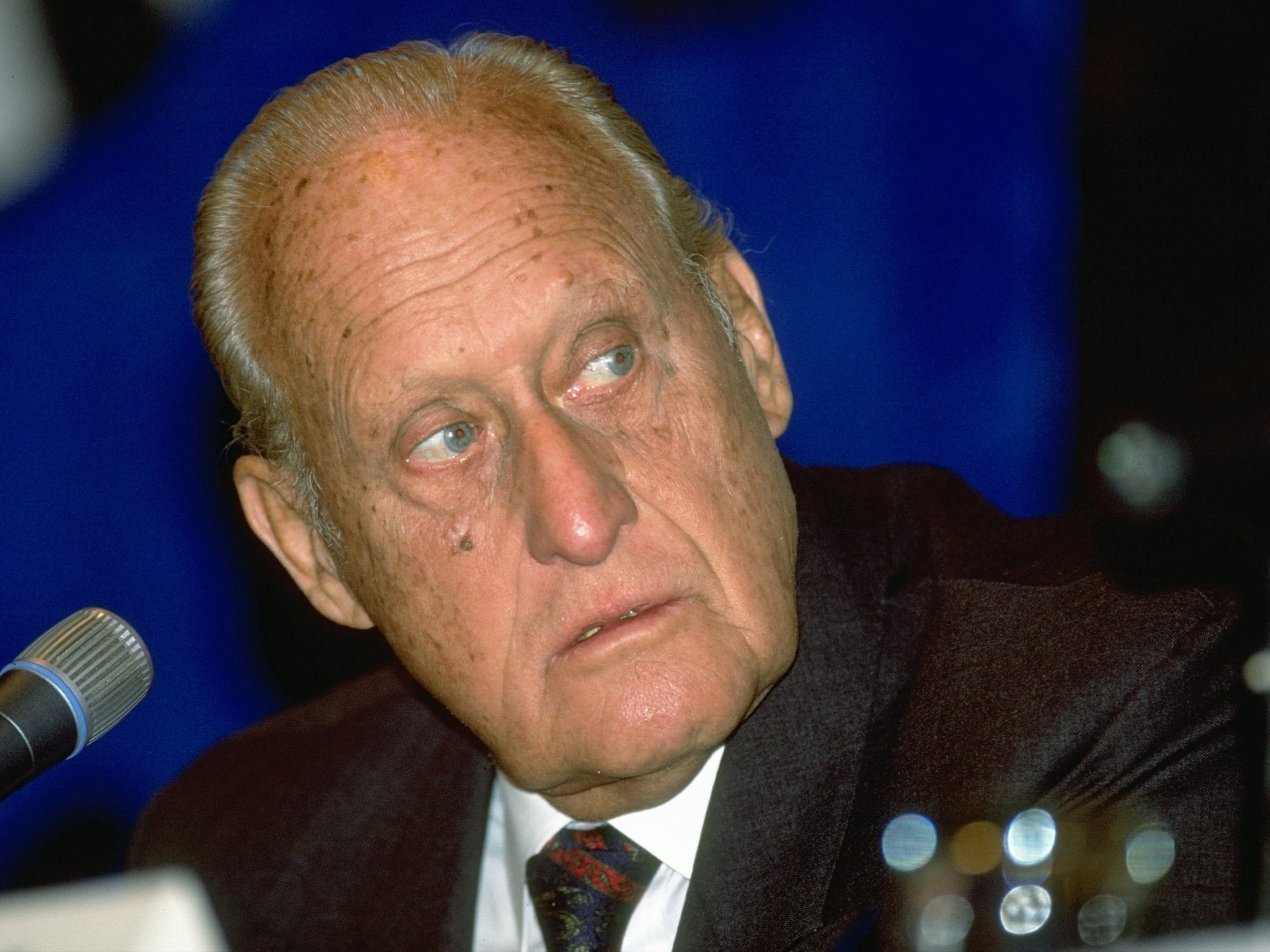Joao Havelange: The Godfather of Sport's Corrupt Family
The disgraced former Fifa President Joao Havelange, mentor to Sepp Blatter, has died while the Olympics take place in a stadium temporarily stripped of his name

It is nothing if not fitting that the Godfather of sporting corruption should die at at the age of 100, while the Olympic Games takes place in a stadium that, to spare embarrassment, temporarily does not bear his name.
Usain Bolt, Mo Farah, Jessica Ennis-Hill, David Rudisha and the rest have all run in rings around the half empty Joao Havelange Stadium in the last few days, named after the towering former Brazilian swimmer and would-be statesman who positioned himself at the crossroads of high sport and high finance then diverted the lot to his own account.
You might say he was a visionary. It was Havelange who saw first that the faster, higher and stronger ideals pursued by talented and dedicated amateurs were the perfect vehicle through which others concerned with less lofty pursuits could get fatter, richer and more powerful.
Brazil’s current extended stay in the global spotlight has illuminated to the world its difficulties, and its difficult way of doing things. A world in which the boundaries of the personal, political and the financial meld to suit the current circumstances and the present interests. For those who try to understand the complex and murky world of sports politics it has been particularly eye-opening. That sports politics have long had that uniquely Brazilian flavour is the old man's doing.
It was he who signed sport’s first deal with the devil. Having become President of Fifa in 1974, first via the Brazilian Swimming Federation and later the International Olympic Committee, it was he who pioneered the mega contracts signed between football and Coca-Cola and adidas. Now, so successful and so pervasive is the subliminal drip drip drip of sports advertising that you actively have to stop to pause and think that, yes, these magnetising and magnificent young men and women, achieving the impossible on my TV screen, are flogging me Coke and McDonald’s against their wishes and they’re not even being paid for it.
When Brazil hosted the World Cup two years ago, it was inevitable that romantic comparisons would be made with the only time it has ever done so, in 1950. Then, in the final match, 200,000 flooded Rio’s Maracana, many of them buying cheap tickets at the turnstiles. Last time round, the final was played out in the same placid atmosphere as has become the norm. With so many sponsors and official partners to placate, and the clients they want to bring with them, there are precious few left for the already narrow band of fan able to meet the hyper-inflated ticket price.
The vast enrichment of sport has of course had its upsides, and none more obvious than on the field of play itself. Football in particular bears scant relation to the game Havelange took over in 1974. The players are fitter and their ability more breathtaking than ever before. Cash has transformed the entire spectacle. And it remains the only truly global meritocracy. In what other walk of life could the sons of a Sir Alex Ferguson or a Johan Cruyff lose out to the superior abilities of a slum kid from Sao Paolo or Senegal?
Havelange could not have foreseen the developments of recent years. When a digital revolution would transform television viewing habits, leaving sport standing almost alone as the one thing that still *has* be watched live, and so whole multinational media corporations are built around it. No, even he could not have foreseen that Rupert Murdoch would pay £10m for the right to broadcast Hull City vs Burnley.
And if it were Havelange that elevated football into the world of the business class lounge and the private jet, it was those that came after him, specifically his protege Sepp Blatter, that flew it too close to the sun.
On Sunday not even Usain Bolt could fill the Joao Havelange Stadium. The tickets cost too much, and Brazilians are frankly not that interested. It’s as close as such non-life and death matters get to a tragedy. It is they who have paid for this latest taxpayer funded advert for the world’s biggest brands and they’re not even there to see it.
There are complex reasons for that, many entirely separate from sport. As football seeks to rebuild itself in the wake of its dark hour in the Zurich dawn last year, and as the Olympic movement wrestles with its own intravenously injected existential crisis, it may yet come to pass that the sweeping blue banks of empty seats in the Joao Havelange Stadium were the low point from which sport rebuilt itself in a new image. The moment that the empire crumbled and the Godfather passed on.
Subscribe to Independent Premium to bookmark this article
Want to bookmark your favourite articles and stories to read or reference later? Start your Independent Premium subscription today.

Join our commenting forum
Join thought-provoking conversations, follow other Independent readers and see their replies